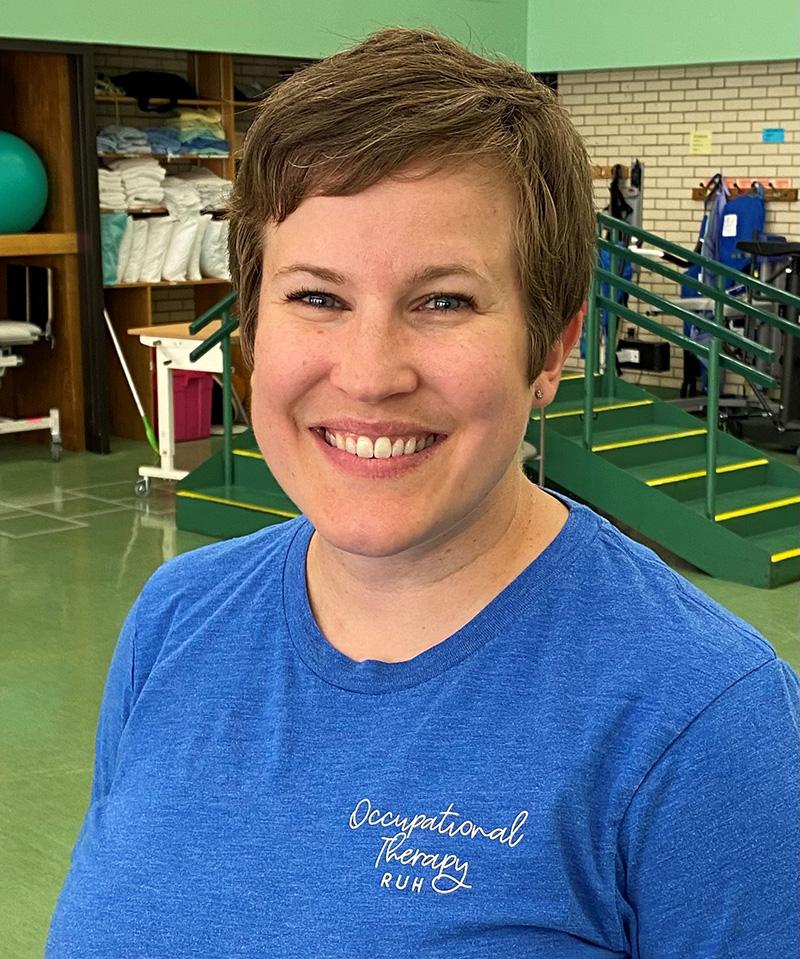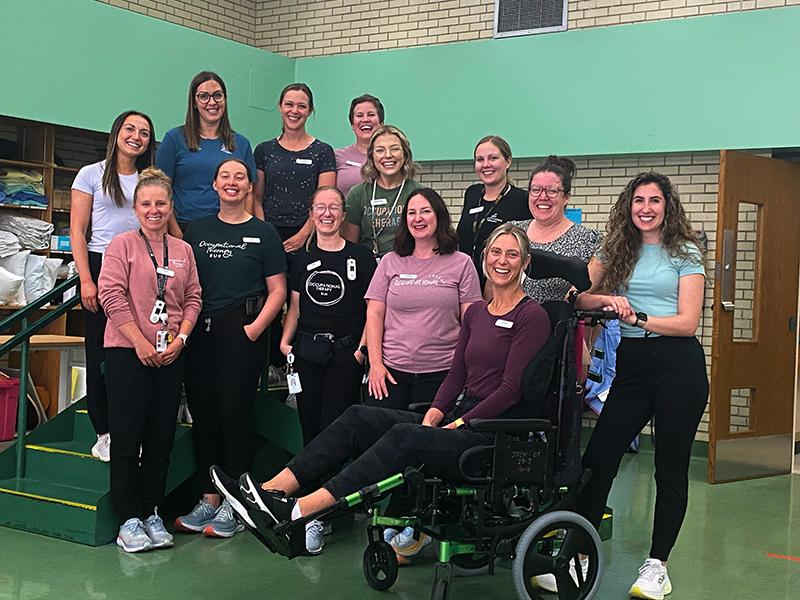Christine Magdanz Career Spotlight
Christine Magdanz is an Occupational Therapist (OT) who practices in Saskatoon. Learn more about her profession and experience with the Saskatchewan Health Authority:
What area of healthcare do you work in? Where do you work?
"I am an Occupational Therapist and I work on various inpatient adult wards at the Royal University Hospital in Saskatoon."
What are you responsible for as an Occupational Therapist? Please describe a typical day for yourself.
"As an OT, I am responsible for enabling my patients to engage in meaningful occupations, working towards regaining their function and independence in everyday tasks. I work to rehabilitate, modify, adapt, facilitate, educate, and empower my patients. Essentially, I help people do what they want to do and what they need to do.Often in acute care, my patient’s goals focus around discharging home. My job is to facilitate their discharge by focusing on their functional and cognitive rehabilitation, as I help to maximize the patient’s independence in their activities of daily living. This might involve arranging for adaptive equipment including wheelchairs, coordinating supports, modifying the activity and/or environment, and helping the patient regain many types of function. A typical day involves managing my caseload by prioritizing the Occupational Therapy referrals, assessing and treating my patients, completing documentation and attending multi-disciplinary team rounds where I advocate for my patient’s goals. I also attend professional development and continuing education sessions, as well as maintain a professional competency portfolio and active registration with the Saskatchewan Society of Occupational Therapists (SSOT)."
How is your work-life balance as an Occupational Therapist?
"As an OT, I typically work 8-4:30 during the weekdays, as well as an occasional weekend day shift. Work-life balance as an OT is great as there aren’t any night or 12-hour shifts. Being an OT allows for adequate time for family and other interests, as well as engaging in a healthy lifestyle."
Have you always wanted to be an Occupational Therapist?
" I learned about Occupational Therapy during my undergraduate honours degree in psychology. Knowing I wanted to do a Master’s degree, I was exploring various programs and stumbled upon Occupational Therapy and immediately knew it would be the perfect fit for me, since I wanted a job that allowed me to help people using creative methods. Unfortunately, there aren’t any Occupational Therapy programs in Saskatchewan so I had the opportunity to move to Edmonton where I completed my 2 year Master’s Degree at the University of Alberta."
Are there opportunities to further your career as an Occupational Therapist?
"OTs may further specialize in many fields such as Clinical Hand Therapists, Pelvic Floor therapists, or Wound Care practitioners (to name a few). Having the foundational Occupational Therapy skills allow us to expand our practice into many areas and for all ages. OTs work in inpatients, outpatients, schools, communities, long-term care and other facilities, in various Mental Health services, as well as in policy and government."
Do you have any advice for students or new graduates looking to pursue a career as an Occupational Therapist?
"My advice for students would be to consider Occupational Therapy if you want to help people regain their function and dignity after injury or illness. The Master of
Occupational Therapy programs (across Canada and worldwide) teach you to think like an OT and provide you with the theoretical frameworks through which you approach your practice. With that OT lens, you can then be a mender of hope, dignity and function for your clients, patients and residents, wherever you practice."
What is the number one thing you love about being an Occupational Therapist?
"My number one thing I love the most about being an OT is that I get to work with and for people: my patients and clients, along with their families and communities. Occupational Therapy is, at the core, a client-centered discipline which means the goals and treatment are determined and directed by the patient themselves and I get to facilitate and enable them to reach their full potential."




